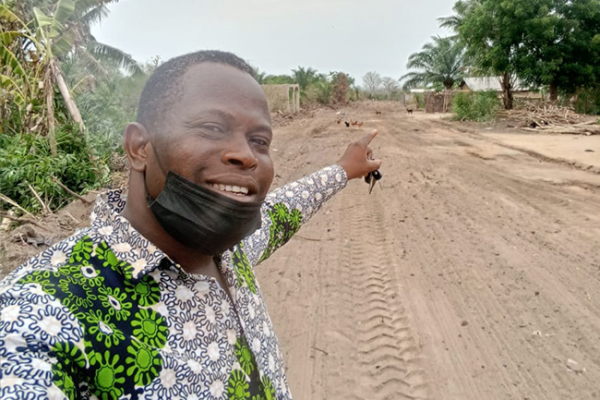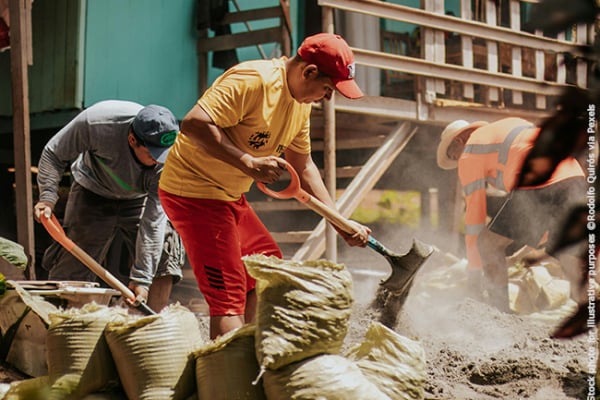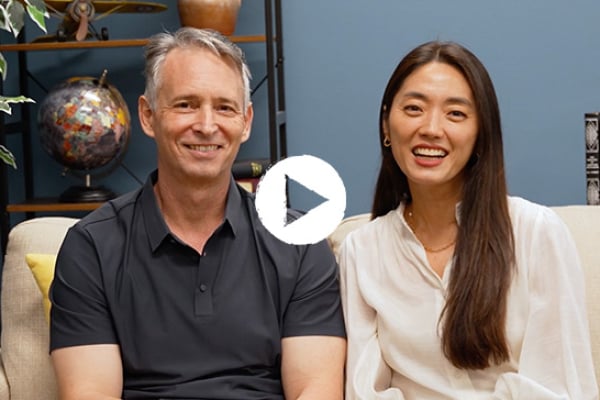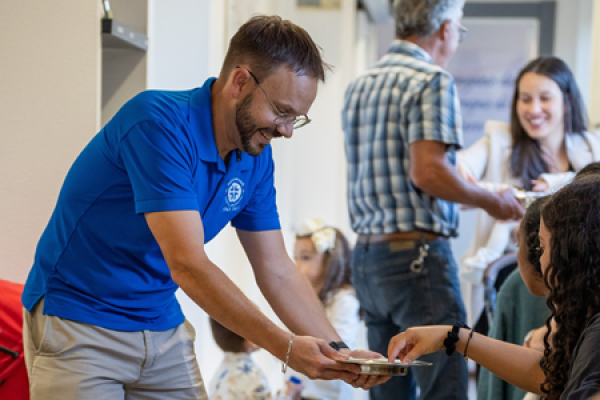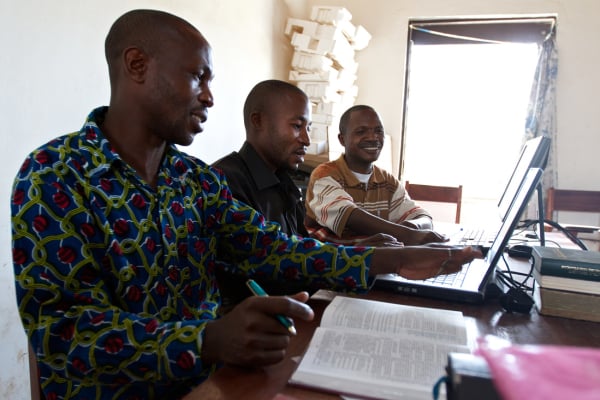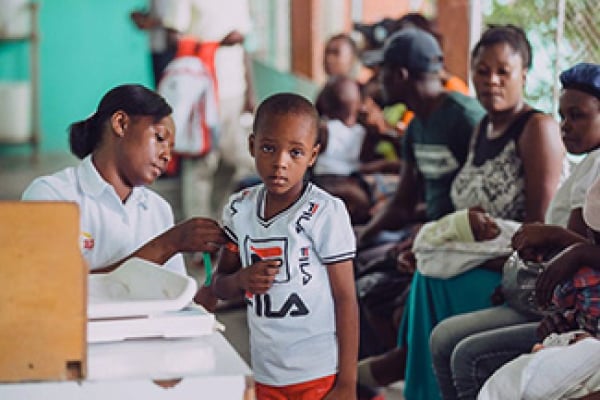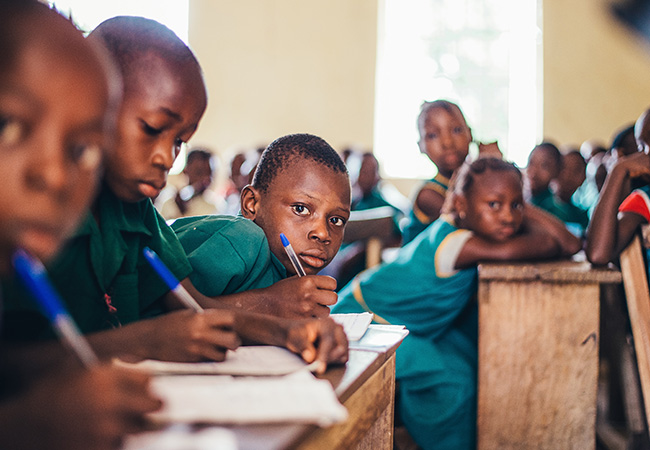
7 Things No Missions Textbook Will Teach You
Whether or not you study for a Bible or missions degree before you move overseas, you won’t be a pro when you arrive on the ground. Some things can only be learned by experience … or by the experience of others.
We asked Crossworld disciple-makers to share key lessons they’ve learned from years of cross-cultural ministry. With their wise guidance, you can avoid common pitfalls and be more effective among the least-reached.
Here are the lessons they shared from their missions experience.
“It’s important to develop real relationships by getting to know the person, not just knowing what he or she is ‘supposed’ to believe.” |
|---|
1. You won’t find textbook beliefs on the street.
“I formally studied Islam before I moved to the Balkans, and I quickly learned that I knew more about some formal teachings of Islam than the local people. The average person in my community doesn’t read the Koran or go to the mosque regularly. One of my friends identifies as a Muslim and wears a gold chain with his astrological sign. On paper those elements don’t add up. What I’ve found is that individuals don’t always meet the textbook definition of their religion, and discussing formal teachings can be almost pointless. It’s important to develop real relationships by getting to know the person, not just knowing what he or she is ‘supposed’ to believe.” — Nolan, Balkans
2. Real people are messy.
“No missiology class can prepare you for the emotional impact of working with real people. We often hear about discipleship as a linear process from budding faith to maturity in Christ. But the reality is that people are non-linear in their walk with Jesus. Some have amazing transformations, while others struggle for years. You’ll experience heartbreak over someone’s life-destroying choices, but you’ll also experience indescribable joy as you watch someone go from walking in darkness to rejoicing in the light. True disciple-making relationships come with an emotional price to pay.” — Dave, Ecuador
3. The stress of crossing cultures will reveal your own sin.
“I learned about culture shock before I went to Haiti. But one day early on, I found myself angry over a small thing. I was puzzled — what part of culture shock was this? I didn’t know I had issues with anger. But the stress of learning a new language and culture, and getting along with teammates who were so different than me, squeezed out things deep within my heart that I had not dealt with properly.” — Bruce, Haiti and Senegal
4. You need the local people as much as they need you.
“I learned to trust my local friends, which not only benefited me but also grew our relationships deeper.” |
|---|
“During my intercultural studies internship in Asia, I relied on my American supervisors for everything I needed. They had lived there 10 years and knew more than me about the culture and language, even though there were still things they didn’t know or understand as foreigners. After I graduated, I returned to Asia but this time, my supervisors were out of the country. I had to learn to depend on local people when I needed help or had questions. It turns out they were even better helpers than my American friends because this was their home. In school, I learned to trust my training and my team (and God, of course). On the ground, I learned to trust my local friends, which not only benefited me but also grew our relationships deeper.” — Jana, Central Asia
“We in the West are raised to be independent, individualistic, and productive, to take charge and fix problems. We arrived in Haiti with all the answers, ready to do something about the needs we encountered. I don’t remember being taught how important it is to arrive as learners — with an attitude of needing the people, rather than an attitude that they need us. When we moved from Haiti to Senegal, we started off better because of what we learned in Haiti. Even though we were older, we saw ourselves as learners, needing our hosts to teach us. This opened up relationships and opportunities far more quickly.” — Bruce, Haiti and Senegal
5. When does helping help, and when does it hurt?
“Missions training on themes like creating dependency and economic development goals lose a lot of their practical application when you live among the people. The principles are good, but real-life issues are much less black and white. Economic resources can be a huge blessing or can be the downfall of a ministry. There’s so much nuance in learning how to help people in a constructive way that can’t be taught in a classroom; it has to be learned in the context of sincere relationships with the people you’re serving.” — Dave, Ecuador
6. Making disciples means sitting with people.
“You can learn a lot about the Bible in a classroom, but only experience can teach you how to be with people in crisis.” |
|---|
“You can learn a lot about the Bible in a classroom, but only experience can teach you how to be with people in crisis. When your friend gets a phone call that her mom has cancer. When your neighbor gets COVID. When your teammates leave the field or your friend’s husband dies. There’s no training for that. It takes living through it with somebody who has done it before, and doing it yourself.” — Damon, Balkans
“You can’t build relationships through a book. You have to be present, live among the people, and get involved in their lives. As I got to know the culture and the people, I didn’t always agree with their superstitions and traditions, but I learned to respect them. To earn the people’s respect, you have to respect them first.” — Darlene, Dominican Republic
7. You’ll be at home nowhere and everywhere.
“We were at home in Nashville before we moved overseas. When we got to West Asia, we were not at home there. But then when we came back to the U.S., we weren’t at home in Nashville anymore either. We had changed. We went from being at home in one place to being at home nowhere. Eventually, though, as we learned to transition cultures and understand people, we came to feel at home everywhere.” — Virgil, West Asia
Want to learn more from these seasoned workers? That’s the value of being part of a missions community. Talk to a recruiter about the benefits of joining Crossworld.
The people in this story are real, but some names have been changed to protect their privacy..png)

 By Crossworld
By Crossworld